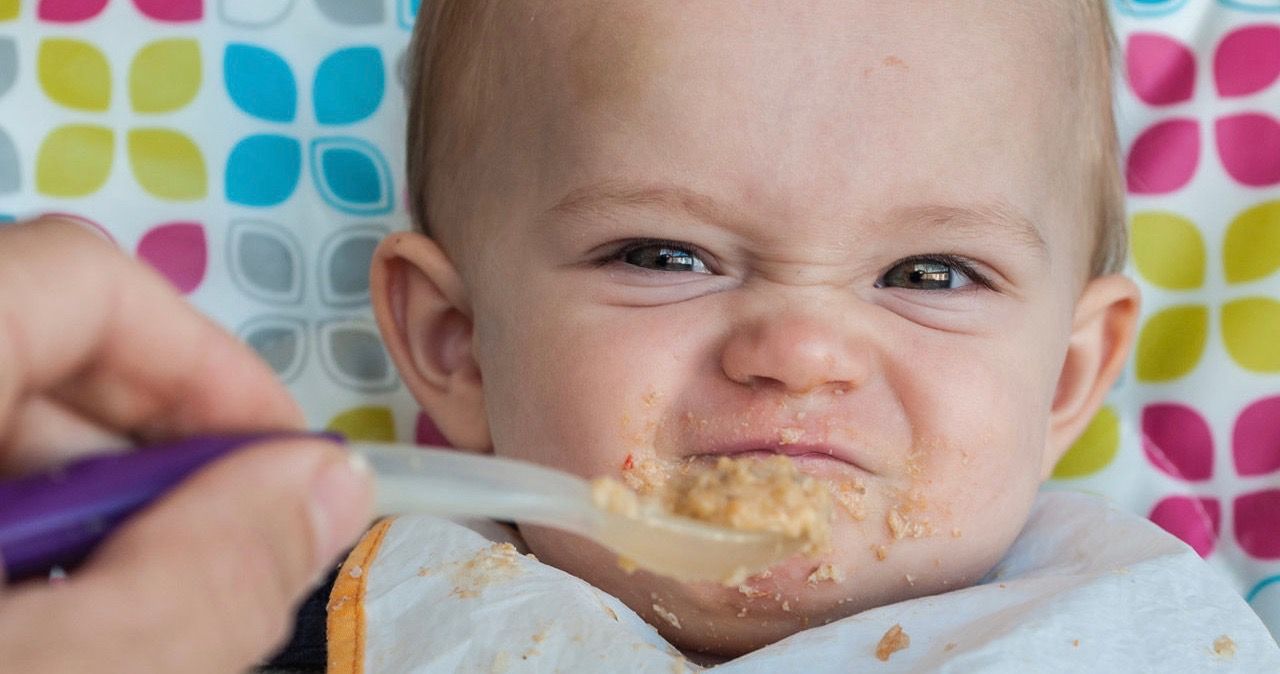A new study shows that toxic heavy metals, which can alter brain development in infants, are common in baby food sold in the United States. Of the 168 baby foods from major manufacturers, 95% were found to contain lead, 73% arsenic, 75% cadmium and 32% mercury. One-fourth of the baby foods contained all four of these dangerous heavy metals.
One in five baby foods examined had more than 10 times the 1-ppb limit of lead endorsed by public health advocates. Experts, however, believe that no level of lead is safe. The results mirrored a past study conducted by the Food and Drug Administration, which found one or more of the same metals in 33 of 39 types of baby food tested. Rice-based products, sweet potatoes, and fruit juices posed the highest risk for neurotoxic harm, the study found.
"Even in the trace amounts found in food, these contaminants can alter the developing brain and erode a child's IQ. The impacts add up with each meal or snack a baby eats," the report said. "These popular baby foods are not only high in inorganic arsenic, the most toxic form of arsenic, but also are nearly always contaminated with all four toxic metals."
Past studies found that even low levels of arsenic exposure can hinder a baby's neurodevelopment. A 2004 study of children in Bangladesh exposed to arsenic in drinking water found that they scored significantly lower on intellectual tests. A meta-analysis of studies revealed that a 50% increase in arsenic levels in urine was linked with a 0.4-point decrease in the IQ of children between the ages of 5 and 15.
Arsenic, which is found in soil, water and air, is most toxic in its inorganic form. Given that rice is grown in water, it tends to absorb inorganic arsenic and has the highest concentration of any food. Brown and wild rice are the most toxic since the milling process removes the outer layers, where much of the arsenic is found.
Organic foods are not immune to toxic metals either. A 2012 study found that brown rice syrup, used as a sweetener in organic foods had substantial levels of arsenic. One "organic" milk formula for toddlers had inorganic arsenic levels that were six times those considered safe by the Environmental Protection Agency. In the Healthy Babies study, four of seven rice cereals included the most toxic form of arsenic in levels that exceeded the FDA's proposed action level of 100 parts per billion (ppb).
The report urged immediate action by major baby food companies and the FDA. "When the FDA acts, companies respond. We need the FDA to use their authority more effectively, and much more quickly, to reduce toxic heavy metals in baby foods," said study author Jane Houlihan, research director for Healthy Babies Better Futures.
Pediatrician Tanya Altmann, author of What to Feed Your Baby agrees with the American Academy of Pediatrics, which recommends that parents include grains such as oats, barley, wheat and quinoa in a child’s diet, rather than just rice. "Best first foods for infants are avocado, pureed veggies, peanut-butter oatmeal and salmon," Altmann said. "They all provide important nutrients that babies need, help develop their taste buds to prefer healthy food and may decrease food allergies." She also added that meats are a better source of iron and zinc for infants than rice cereal.
If you cook rice for a toddler, Healthy Babies suggests cooking rice in extra water and draining it before eating. This will reduce arsenic levels by 60%, based on FDA studies. "For the lowest levels, buy basmati rice grown in California, India, and Pakistan. White rice has less arsenic than brown rice," the report said.
Teething biscuits can also contain arsenic, lead and cadmium, the report said. A better way to soothe a baby's pain is with frozen bananas, a peeled and chilled cucumber or a clean, wet washcloth.
Juices don’t get great marks either since they are high in sugar, lack fiber, and can lead to tooth decay and obesity. Apple, pear, grape and other fruit juices can also include lead and arsenic. Experts recommend water and milk, depending on the age of the child. Babies under six months only need breast milk or formula. Toddlers can consume water and whole milk, and children 2 to 5 years old can drink skim or low-fat milk as well as water. Juice, when consumed, should be 100% juice and watered down.
RELATED: 10 Of The Best First Foods For Babies, Ranked
In terms of vegetables, sweet potatoes and carrots provide vitamin A and other key nutrients but can be high in lead and cadmium, therefore, parents should add a greater variety of fruits and veggies to their children’s diets.

